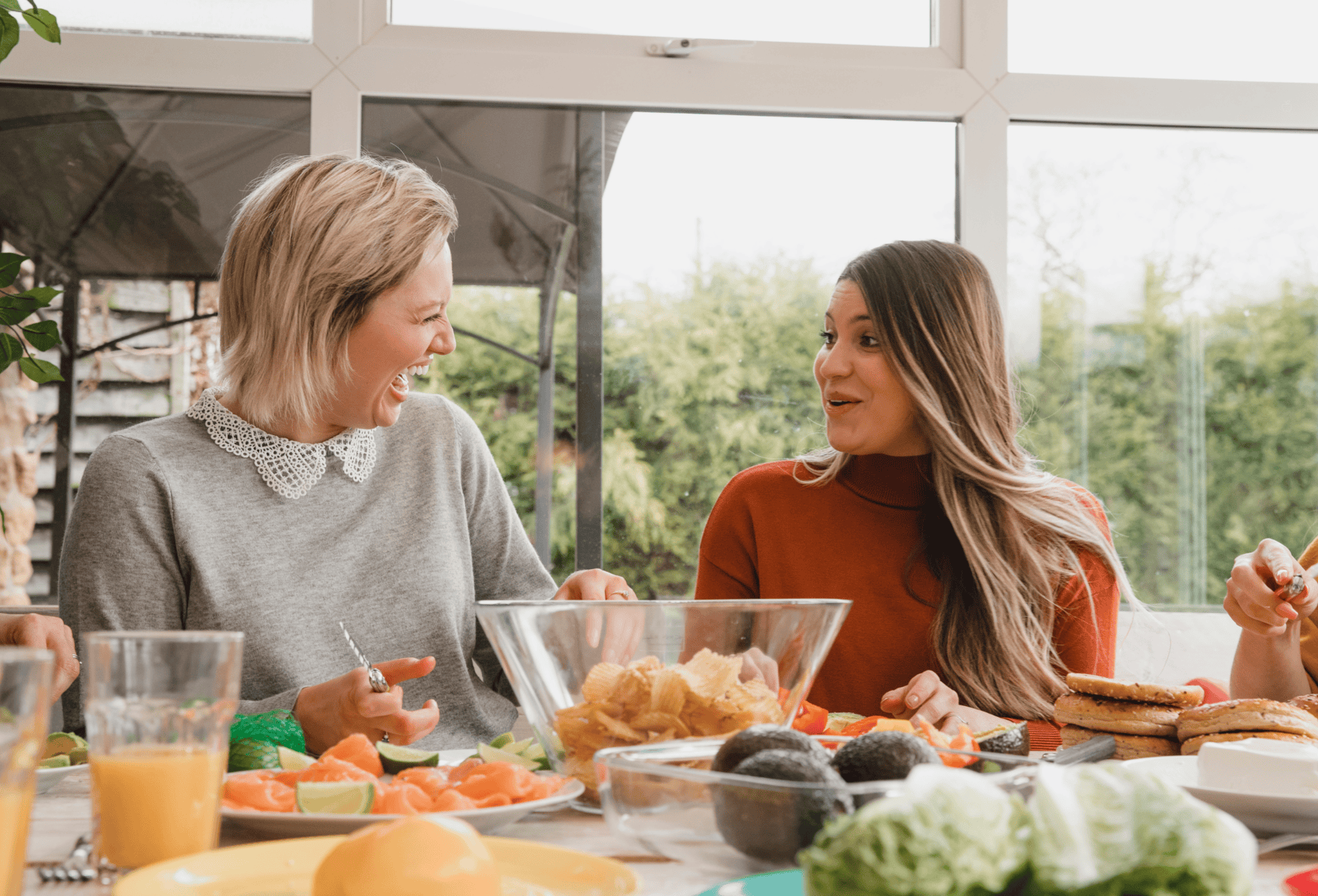
In Challenging the Food Police: Part One, we looked at the food police that live inside of our heads. These are the food police that are referenced in the 10 Principles of Intuitive Eating (more on that here). However, these are not the only ‘food police’ we come across. There are also external food police that many of us come up against in our daily lives.
Who are the external food police?
The external food police are people who comment on others’ food choices, often without being asked to. Sometimes their comments also overtly relate to a person’s size or shape. These external food police are generally well-meaning, with the best interests of their family member friend, or colleague at heart.
The food police are a product of diet culture and, as such, can make harmful comments without knowing the damage they can do. When we hear their comments, they can reinforce the internal food police inside of our heads.
What about dietitians?
While it’s true that dietitians comment on others’ food choices, these should never be off-hand remarks or unsolicited. It saddens me when people refer to dietitians as the food police, as we are not here to restrict your eating or make you feel bad about yourself – quite the opposite!
Dietitians can help you assess the quality of your diet in a non-judgmental way and help to decide whether tweaks to what you eat can optimise your health.
Dietitians with extra training, such as myself, can also help you with the ‘hows’ and ‘whys’ of eating, and help with identifying the food police. We work with you on individual strategies to improve your relationship with food and deal with the food police (internal and external!).
What might the external food police sound like?
The external food police’s comments can be many and varied. Some might even seem innocuous on the surface. Examples include:
- ‘I don’t know how you can eat all of that!’ and its evil twin sister: ‘is that all you’re going to eat?’
- ‘Are you sure you want to eat that?’
- ‘Are you sure you want to eat that much?’
- ‘Oh, that’s what/how much you’re having!’
- ‘You’re having another one?!’
- ‘I thought you were on a diet…’
- ‘Aren’t you worried about all the carbs/toxins/fats/preservatives/additives/calories/[insert other demonised ingredient here]?’
- ‘I don’t eat [insert fad food or nutrient to avoid].’
- ‘That’s so great that you’re only eating a salad for lunch!’
- The response of ‘that’s ok, you could stand a miss a meal anyway’ to someone commenting they are hungry.
- ‘I don’t eat that, it will give you diabetes.’
- ‘It’s so great that you can eat anything you want, and it doesn’t matter! I certainly couldn’t do that or I’d get fat!’
- ‘You need to eat more and put some meat on your bones.’
- Judgmental names for foods, such as calling a meal ‘a heart attack on a plate’.
The list really does go on, but I’ll leave it there!
So, what can we do?
Being on the receiving end of the food police’s comments is challenging. While there is no one-size-fits-all approach, here are some ideas to get you started:
1. Remove yourself from the situation
External food police comments can be made anywhere – in the workplace, at a party, during a family dinner, at a sporting event… The list goes on. While we may not be able to (or want to!) avoid all the settings for these comments, there will be times when we can walk away. Excuse yourself from the conversation or quietly slip away, no explanation necessary.
2. Increase your confidence in your food choices
Part of the difficulty in dealing with food police of any sort is believing what they have to say. This can stem from years of dieting yourself, confusion about what is ‘healthy’ or not, and second-guessing your body’s wants and needs. Increasing your confidence in your own food choices can thus make it easier to ignore the comments. Explore your body’s cues, understand what feels good for you, and learn to tie this in with sound nutritional advice. This article could be a helpful starting point.
3. Set boundaries
Let people around you know that there are some topics of conversation which you are not interested in partaking in, such as diet-related talk. You could start by saying something like: ‘I’m not comfortable talking about food and diets at the moment; could we talk about [topic you are both interested in] instead?’
4. Say something
If you feel up to it, tell the food police how these comments make you feel. This can be a huge challenge, and you are not obliged to try to change other people’s beliefs. However, if you are very passionate and feel mentally prepared to talk about this, open a conversation about why the comments can be harmful. Discuss the effects of diet culture on everyone, and what you have learnt. Encourage them to read this article!
This might be tricky for me…
You’re not the only one! Dealing with the external food police, let alone challenging them, is not an easy task.
My advice is to seek support! Have a health professional on your side to help you navigate your everyday food environment, along with the people in it. A non-diet dietitian can help you to feel confident in your own food choices. This way, you will be better equipped to deal with the unwanted quips!
Stay tuned for part three, Help! I think I’m the External Food Police!, where we tackle what to do if you think you are the food police.
Are you wanting to move away from diet culture? We are here to help! The Healthy Eating Clinic takes a health-first approach to nutrition, to ensure you are getting the best support to thrive!



